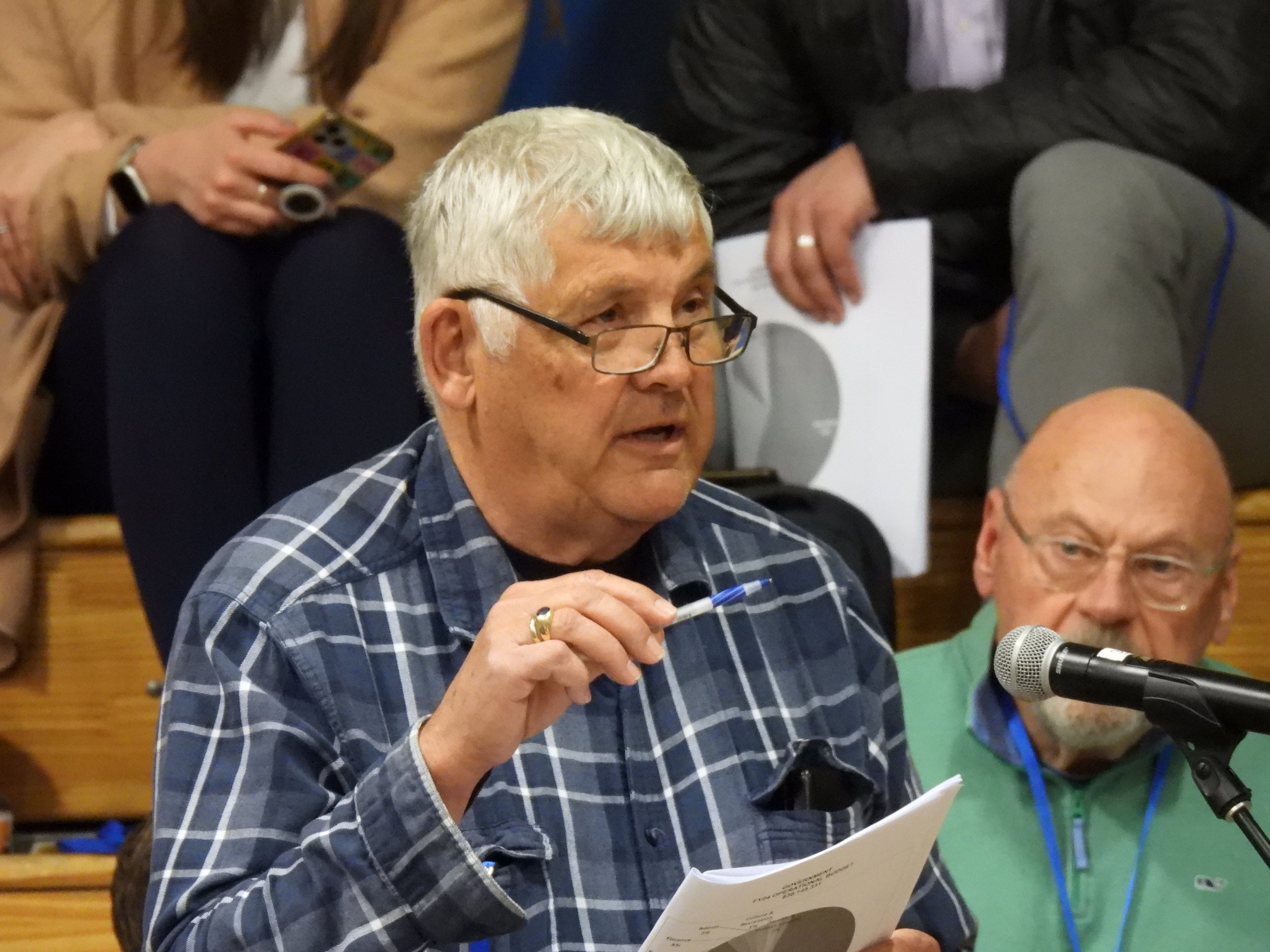There was an unexpected twist to the citizens’ petition submitted by Meghan Sylvester and others related to allowing Alternative Compassion Solutions, the existing medical marijuana dispensary on George Washington Boulevard, to add retail sales by special permit, subject to site plan review.
A substitute motion, which was approved by voters, was offered by the petitioners that requested, “based on information we were given by town counsel after town meeting began,” that “Article 18 be referred to the zoning bylaw committee without prejudice for consideration of the article at any special or annual town meeting.”
There was no further information given by Town Counsel James Lampke at that time, but at the end of the session, he offered to provide more details once the meeting had adjourned “to anyone wanting to stick around.” The deferral was requested because the article addressed only the zoning prohibition on retail marijuana, not the ban contained in Hull’s general bylaws. A negative vote on the zoning change would have prevented the issue from returning to town meeting for at least two years.
About 200 voters approved requiring an affordable housing component for any new development of more than 10 units, increasing dog license fees, and authorizing the select board to enter into negotiations with state authorities for a long-term lease of DCR property. The Hull Artists group has proposed creating permanent art center in the vacant state-owned police station.
Hull Artists President Bart Blumberg urged voters to support the citizens’ petition. In addition to providing a thriving art center for Hull and surrounding communities, such a project would also create economic development opportunities for the town, he said.
“Passage of this article would begin the process of producing a rare win win-win for the Commonwealth, the town, and Hull Artists.” he said.
Voters also approved another citizens’ petition, submitted by proponent Susan Vermilya, a founding member of SOS (Save Our Space) and others, seeking to delay decisions on development proposals for the Hull Redevelopment Authority parcel until the impacts on usage capacity for water, sewer, and electricity and of climate change are determined and posted on the town website and in The Hull Times. The article is non-binding.
Voters also authorized the town to appropriate and spend up to $1 million for various design and construction work for elements of vital town infrastructure to get certain projects “shovel ready.” This will assist the town in obtaining grants and other funding sources to help defray the cost to the town even if some of those projects ultimately need to be bonded in the future.
Voters said “no” to instituting limits on the time served by select board members to three full terms or 10-1/2 years, whichever is less. The original article, also a citizen’s petition, related to all elected town boards.
Proponent Christopher Sweeney explained the reasoning behind it.
“Term limits would break up the monopoly [of elected town officials who have served for multiple terms], allow for new people to run for office, and give voters more choices,” he said.
Calling town meeting and the local election process “the purest form of democracy,” longtime Hull resident Bartley Kelley said he didn’t think the town “should mess with term limits,” which he said occur naturally at the ballot box.
The most complex and lengthy discussion of all three sessions, resulting in what Lampke referred to as “chaos” at times, was the one centering around the inclusionary zoning bylaw requirement for new developments of more than 10 units to include a 10% affordable housing component.
Town Moderator George Boylen handed over the reins to Lampke during the long discussion since he and others had submitted the article as a citizens’ petition.
Boylen noted that 140 cities and towns in Massachusetts have similar bylaws in place.
There was a great deal of confusion and frustration among voters when Lampke presented five amendments by Boylen to the original article, and with technical difficulties in sharing the most up-to-date information to voters.
Planning board member Jean Paquin reported that the board was in favor of the article.
“The town needs to get something into our zoning bylaws related to inclusionary housing,” she said. “We’ve already lost a few [opportunities].”
Select Board Chair Donna Pursel said her board unanimously supported this article. “Inclusionary zoning will help us create a mixed-income community and negate the effects of segregation,” she said.
Town meeting ultimately supported the article, as amended five times by Boylen to change some of the language prior to the vote, which was 159 to 19. Implementation of the article is contingent on Attorney General approval.
As with the previous two sessions, Wednesday’s town meeting wrapped up around 11 p.m., with Boylen thanking those who attended for their patience in navigating through some very complex articles and related discussions.
Do you have an opinion on this issue? Click here to write a Letter to the Editor.




















